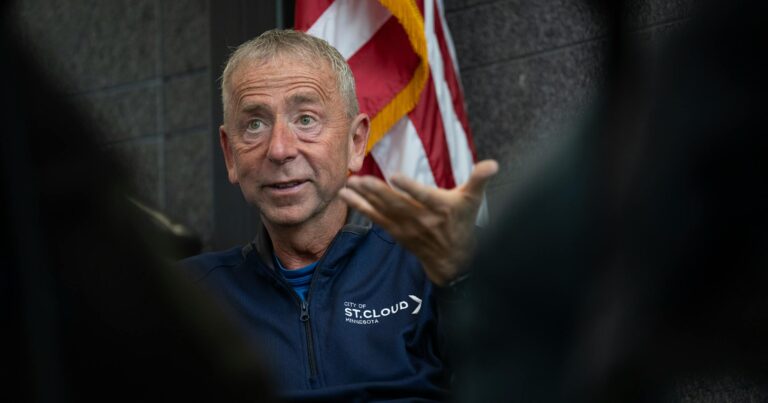ST. CLOUD — Voters here will see a question on their ballot this fall asking whether they approve moving city council elections to odd years, similar to the way things are done in Duluth and Minneapolis and previously in St. Cloud.
St. Cloud Mayor Dave Kreis proposed the change earlier this year, and in July the city’s Charter Commission recommended the issue be put to voters to prevent mayoral and city council seats from being overshadowed by state and national elections.
“The most important election is [largest] “The impacts on the people who live in our community every day are all local issues,” Kreis said at Monday’s St. Cloud City Council meeting. “Sewer, water, public safety are all local issues.”
Kreis, who announced in May that he would not run for a sixth term as mayor, was first elected in 2005. His first term was three years because the city had just transitioned from odd-numbered to even-numbered elections.
“Part of the rationale for the change was that more people would vote in even-year elections,” he said, “but in practice it makes no difference.”
Kreiss said that while more people vote overall in even-year elections, those votes are for state and federal elections, with voting in local elections dropping significantly.
Councilman George Hontos asked about the cost of holding separate city council elections in odd-numbered years. City Clerk Seth Kaufman said it was difficult to estimate. Even-year elections cost between $250,000 and $300,000, Kaufman said, but there could be savings by consolidating precincts and because of the popularity of early voting.
City Council Member Karen Larson said she was concerned the change would discourage voters from participating. Council Member Jake Anderson said he initially had that concern, but now believes voters who show up to the polls in odd-numbered years are more likely to have researched the candidates.
“Participation rates may go down, but I think it’s educated participation,” Anderson said.
“This is democracy,” Kreis added, “It’s essential to representing the community. I couldn’t care less about how much it costs to get the right person, because the cost of getting the wrong person is a much bigger burden on taxpayers.”
If approved, city council elections would change to odd-numbered years in 2029. The terms of the mayor and city council members elected in 2026 and 2028 would be shortened to three years to match the change.
Kreis also proposed this spring to move from the current council system — four ward seats with equal numbers of residents and three at-large seats representing the entire city — to seven ward seats, but that can’t happen until the 2030 census, so Kreis didn’t recommend the city make the change right now.
St. Cloud voters will be asked on the November ballot whether to approve a tax increase to build a new fire station on the city’s south side. The new station would serve an area that has seen recent growth, including a new Tech High School, a charter school and expanding residential areas, while also improving response times citywide.


